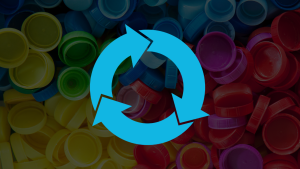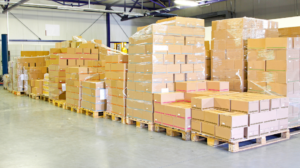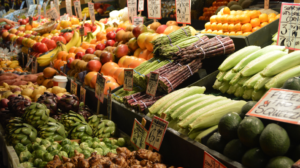Plastics giants announce recycling moves
The world’s largest PET producer will put massive sums of money into boosting RPET production capacity, and petrochemical companies recently described new chemical recycling collaborations.
PET recycling growth: Indorama Ventures received a $300 million financing package to help it expand its PET bottle recycling capacity to 750,000 metric tons a year by 2025. The world’s largest PET producer received what it called “the first-ever blue loan to a global plastic resin manufacturer,” according to a press release. The financing, which was arranged by the International Finance Corporation (IFC), will go toward boosting recycling capacity in Thailand, Indonesia, Philippines, India and Brazil, and it will fund renewable energy and resource-efficiency projects. Noting that those five countries are struggling with plastic waste and ocean plastics generation, Indorama said the loan is the first time IFC has focused its financing on addressing marine plastic pollution (a blue loan is one that exclusively supports ocean health and resources).
In a separate press release, Indorama said it will build a PET recycling plant in Verdun, France and expand recently acquired PET recycling facilities in the Polish cities of Bielsko-Biala and Łęczyca. The new plant and expansions will increase Indorama’s PET recycling capacity in Europe by over 21%. Indorama said commitments by soft drink producers to use more RPET in their bottles made the investments possible.
Pyrolysis liquid supply agreement: Global petrochemicals giant Shell signed a supply agreement with Atlanta-based chemical recycling company Nexus Fuels for 60,000 metric tons of pyrolysis liquid over four years. Even before the signing, over the past year, Nexus has been supplying Shell’s Norco, La. facility with pyrolysis liquid derived from scrap plastics. according to a press release. Shell has processed the liquid into chemicals that go into a variety of goods. Shell framed the agreement as the next step toward its goal of using 1 million metric tons of recovered plastic a year in its global chemical plants by 2025.
Recycled polycarbonate offerings: Saudi Basic Industries Corporation (SABIC) will expand its PCR offerings, adding engineering thermoplastics suitable for use in electronics. The global chemical company announced it would expand its portfolio of Cycoloy and Lexan engineering thermoplastics. According to a press release, the polycarbonate blends will initially contain 30% PCR and 70% virgin plastic, although the company hopes to boost the PCR percentage to up to 60% in 2021. SABIC notes the recycled polycarbonate will come from items such as 5-gallon water bottles and optical media, although the company is also looking at auto scrap sources such as headlights and dashboards. The company noted the recycled plastic will come in granule form.
Chemically recycled PA/PE film: A number of companies are collaborating to produce a recycled-content multi-layer film for meat packaging. Here is how the supply chain works, according to a press release: Global petrochemicals company SABIC relies on a pyrolysis technology from U.K. company Plastic Energy to recycle mixed plastics into chemical products – in this case, benzene. Spain-based oil and gas company CEPSA then processes the benzene into phenol. Next, Netherlands-based chemical company Fibrant processes the phenol into caprolactam. That chemical is then sent to Netherlands-based DSM Engineering Materials to be turned into a polyamide (PA). Meanwhile, SABIC also supplies recycled PE from its TRUCIRCLE portfolio (these products are also created via Plastic Energy’s pyrolysis technology). Lastly, Spain-headquartered packaging producer Viscofan converts the recycled PA and PE into the multi-layer barrier film.
Engineering plastics collaboration: DSM Engineering Materials also signed a deal with chemical recycling company Neste to create recycled high-performance polymers, a press release states. Neste is a Finnish company that processes scrap plastics and residue oils and fats into hydrocarbon products that can be used to make new plastics. The collaboration with Neste will allow DSM to “start replacing a significant portion of the fossil feedstock used to date in the manufacture of its high performance polymers portfolio with feedstock produced from recycled waste plastics and/or 100% bio-based hydrocarbons.” DSM’s plastics are used in the automotive, electronics and packaging industries.



